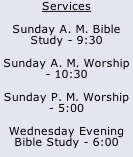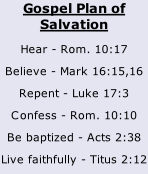








The Sustainer of life and the Economist of the universe is Christ. He is so pictured by all four gospel writers in the account of the feeding of five thousand people with just five loaves and two fishes (Matt. 14:13-
Many of the people had been listening to Christ on one side of the sea of Galilee and had followed Him to the other (Mark. 6:30-
Some have misunderstood this “desert” setting to be an arid, sandy place. Mark pictured it as having green grass and a place to which Jesus and His disciples had traveled by boat (Mark 6:39,32). This should help one understand how the eunuch could find enough water in a “desert” place to be immersed for the remission of sins (Acts 8:26,36).
Christ would prove how much the disciples trusted Him by asking how to solve the problems of feeding the multitude (John 6:6). The human solution was to send the crowd away (John 6:36). This kind of answer came from a little faith which did not know how to avoid the faulty and the harmful. The blessing would have been in immediately turning to Christ and letting him satisfy the need (cf. Matt. 6:33). Jesus desires to help. He has the wisdom and the power to help. The “little” one may will never to do great things until it is given to Christ. The Jews had a superstition that demons lived in bread crumbs. Jesus commanded the fragments be saved for future use. This not only denied their superstition but showed that the blessings of Christ are not limited and that nothing in this life is evil if used according to God’s purposes. It is sad to imagine that all these ate, that most of them just left, and all thought (except for the twelve) that Christ was too “hard” a teacher (John 6:60,66).
Mark juxtaposed Herod’s drunken feast (John 6:18-
Keith Mosher, The Spiritual Sword, Vol. 20, No. 3 January 1989


